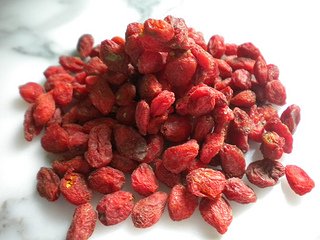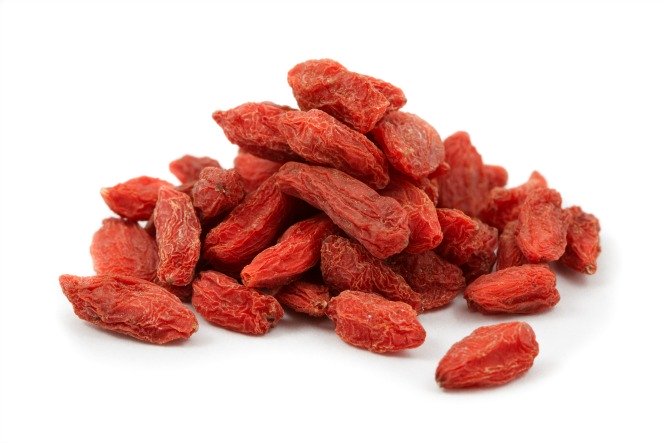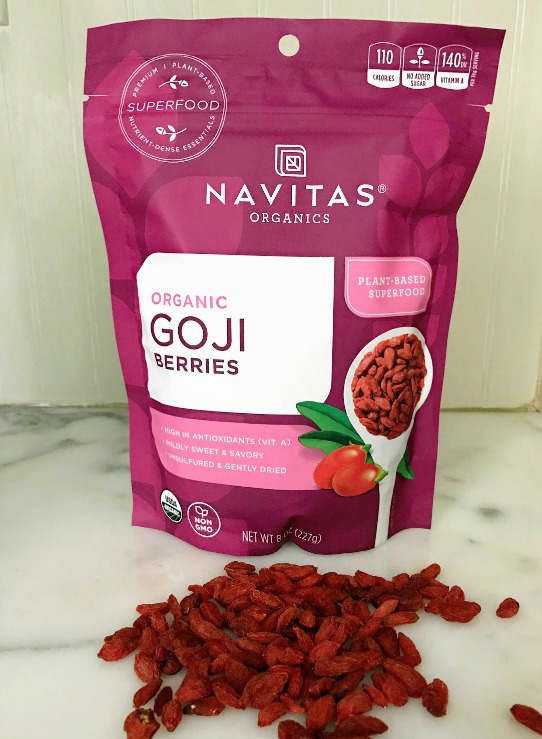Goji Berries Benefits to the Macula
Organic goji berries benefits to the macula are the result of their high amounts of antioxidant compounds, including zeaxanthin. They may possibly be one of the best foods for your eyes and especially your macula - find out why.
Goji Fruit
Goji berries are very nutrient dense berries rich in antioxidants and listed by some specialists as one of the top 10 "Superfoods."
In the health-food industry, this berry is also known as the Chinese wolfberry. The berries grow on an evergreen shrub found in temperate and subtropical regions in China, Mongolia and in the Himalayas in Tibet. Rather than eaten as fresh fruit, you can purchase dried goji berries that look like small, red raisins.
This fruit offers a balance of daily macronutrients of
carbohydrates,
high-quality protein,
healthy fat, and
soluble fiber.
Its plant-based protein actually has 18 amino acids -- including all 8 essential amino acids – which is 10% of the fruits composition.
Especially rich in carotenoids such as beta-carotene and zeaxanthin, these Chinese berries are commonly found in juices and teas or can be bought as a dried fruit.
My husband and I have started including organic goji berries into our diet. Although many people do enjoy eating them plain or mixed with their granola, we like to put them in our healthy smoothies.
Some links in the following sections are eBay or Amazon affiliate links, which means that if you purchase a product through them I receive a small commission. There is no extra cost to you. Find more details on this page.
Goji Berries Benefits: High Zeaxanthin
Dr. Lylas Mogk, the author of Macular Degeneration: The Complete Guide to Saving and Maximizing Your Sight, writes:
"There are very few foods rich in zeaxanthin. Wolfberry (another name for the goji berry) is one of them." Dr. Mogk is not only a board certified ophthalmologist but she also has a family history of macular degeneration.
Despite the berry's popularity, the scientific research on them is still in its infancy.
"There is limited data on the wolfberry," said Mark Failla, chairman of the Human Nutrition Department at Ohio State University, who is studying the berry.
Based on early research, Failla says,"... it's clear that they contain extremely high levels of zeaxanthin, a carotenoid related to beta carotene."
P.S. It is important to note that these berries may interact with anticoagulant drugs (commonly called "blood-thinners"), such as warfarin (Coumadin®).
A Superfood?
David Wolfe, the author of Superfoods: The Food and Medicine of the Future, Lists the goji berry as one of the top 10 Superfoods. and goes on to say "Goji berries are perhaps the most nutritionally rich berry-fruit on the planet."

Actually, there is good reason for this for this label. According to his book, David Wolfe tells us that "they are a complete protein source and contain 19 different amino acids. Goji berries can contain 21 or more trace minerals as well as vitamins B1, B2, B6, and vitmin E."
A plant-based protein that includes all 8 essential amino acids is quite rare.
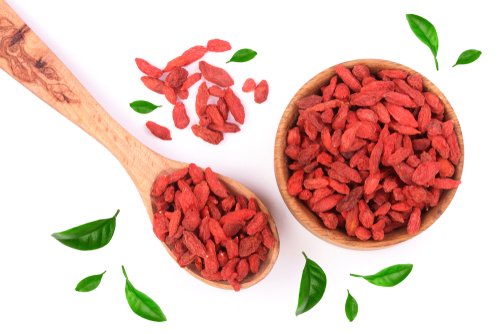
The goji wolfberry has had quite a buzz lately - claiming all kinds of health benefits. While all of the claims may not be well researched, this fruit does have some powerful antioxidants that can support healthy vision.
Goji berries benefits to the macula are the result of their high antioxidant compounds, including zeaxanthin. According to David Wolfe, author of Superfoods: The Food and Medicine of the Future, "goji berries typically contain 2 to 4 times the amount of antioxidants found in blueberries."
Goji Berries Benefits
Foods Containing Lutein AND Zeaxanthin
The goji berry has gotten the attention of those who are concerned
about the macula lutea which is made up of two carotenoids, lutein and
zeaxanthin. While the rod cells of the retina have high concentrations
of lutein, the cone cells which are responsible for our detailed and
straight ahead vision are made up mostly of zeaxanthin. Organic goji
berries are known for their high concentrations of zeaxanthin - one of
the carotenoids that makes up the macular pigment.
Healthy levels of macular pigment reduces one's risk for macular degeneration.

Why do we care about zeaxanthin and lutein? Zeaxanthin, along with lutein, make up the macular pigment, which protects our eyes from the harmful effects of the sun.
While lutein is concentrated mostly in the rod cells of your retina, the cone cells, which are responsible for sharp, detailed central vision, have a high concentration of zeaxanthin.
Both of these pigments are so prevalent in the macula they are called the macular pigment. This layer of tissue protects the macula from the harmful effects of:
√ blue light, a harmful component of sunlight and
√ ultra violet light.
These two powerful antioxidants protect the retina by neutralizing free radicals thus preventing the damage that they cause. Low levels of macular pigment are often found in eyes with age related macular degeneration (AMD) and in those with risk factors for AMD.
As part of our quest to prevent the development of macular degeneration we are adding foods that will help build our macular pigment. The berries taste great in a smoothie, eaten plain or added to your morning oatmeal.
You can buy dried goji berries on line from several sources. The two most reputable brands are Sunfood and Navitas. However, you can get a 16 oz bag of berries from Navitas for almost the same price as an 8 oz bag from Sunfood. If you belong to Amazon Prime you can get free shipping.
Amazon offers again the best prices. Go to Amazon here:
Navitas Naturals Organic Goji Berries, 16-Ounce Pouches
Other Vitamins, Minerals, Carbohydrates and Fats
The benefits of goji berries are many - and not just as an antioxidant. Goji fruit has been historically used to support the immune system and longevity. They are rich in:
Vitamin A
Vitamin E
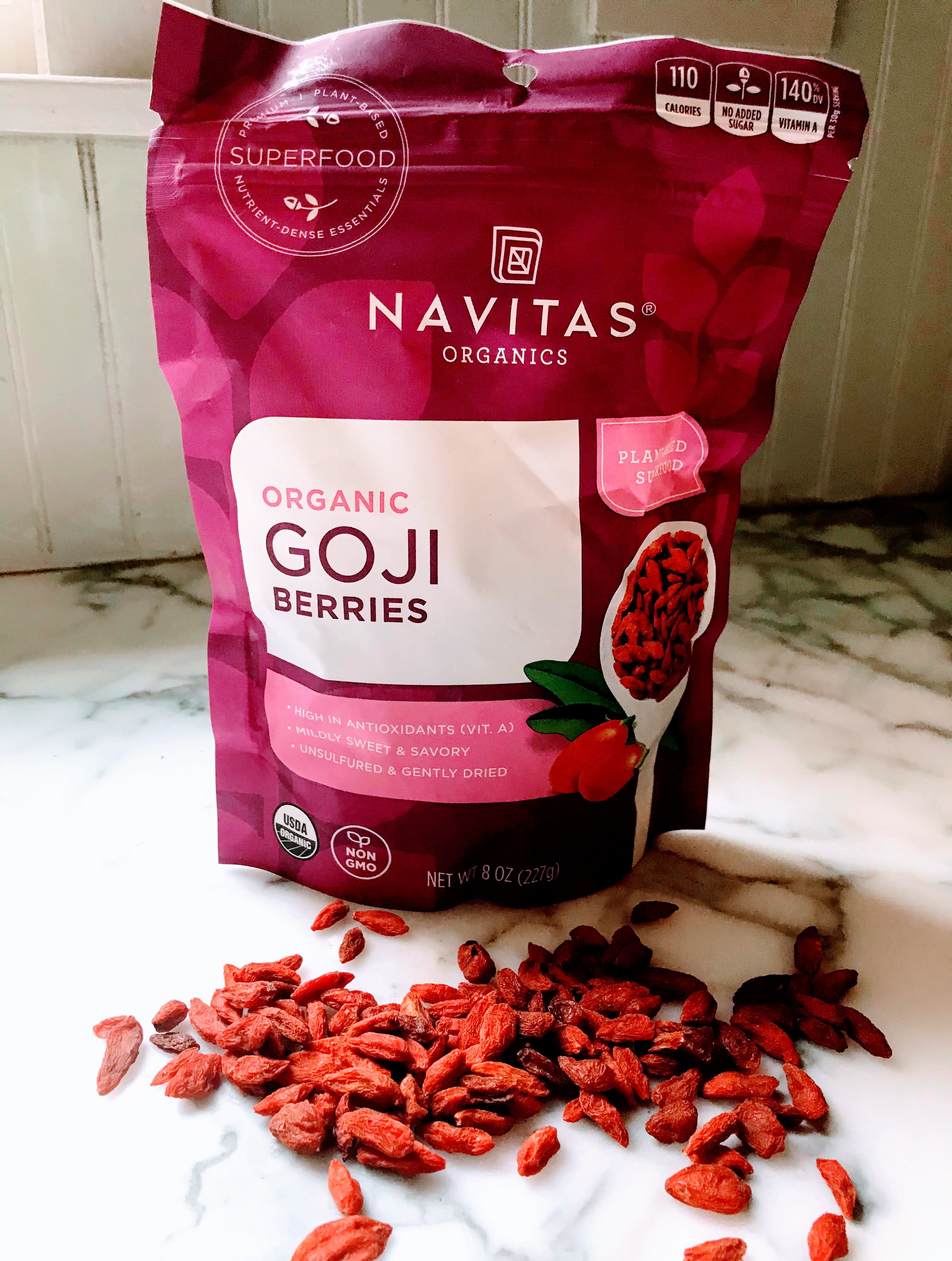
Vitamin C
Cryptoxanthin - a natural carotenoid pigment
Beta Carotene
Lycopene
Iron
B Vitamins
Selenium
Zinc
Iron
Potassium
Calcium
Polysaccharides - complex carbohydrates
Essential fatty acids - linoleic acid and alpha-linolenic acid
Beta-sitosterol and other phytosterols
The content of these nutrients do depend on the maturity of the plant at harvesting, growing and soil conditions, geographic region, processing and length of storage.
It is no surprise that goji berries benefits our health and our eyes in many ways with antioxidants like lutein, zeaxanthin and lycopene.

After becoming aware of all the rich nutrients in these little dried berries, we have become more consistent in including them in our diet and reaping it's many benefits. We put them in our smoothies and our cereal and regularly drink goji berry juice.
We order our organic goji berries from Amazon. Our favorite source of organic products is Navitas. You will find the best prices on-line here:
Navitas Naturals Certified Organic Goji Berries, Himalayan Superfruit - 8-Ounce Pouch (Pack of 2)
The Effect of Goji Berry Intake on Macular Function
A new clinical trial at the University of California, Davis is studying the intake of goji berries on macular pigment optical density.
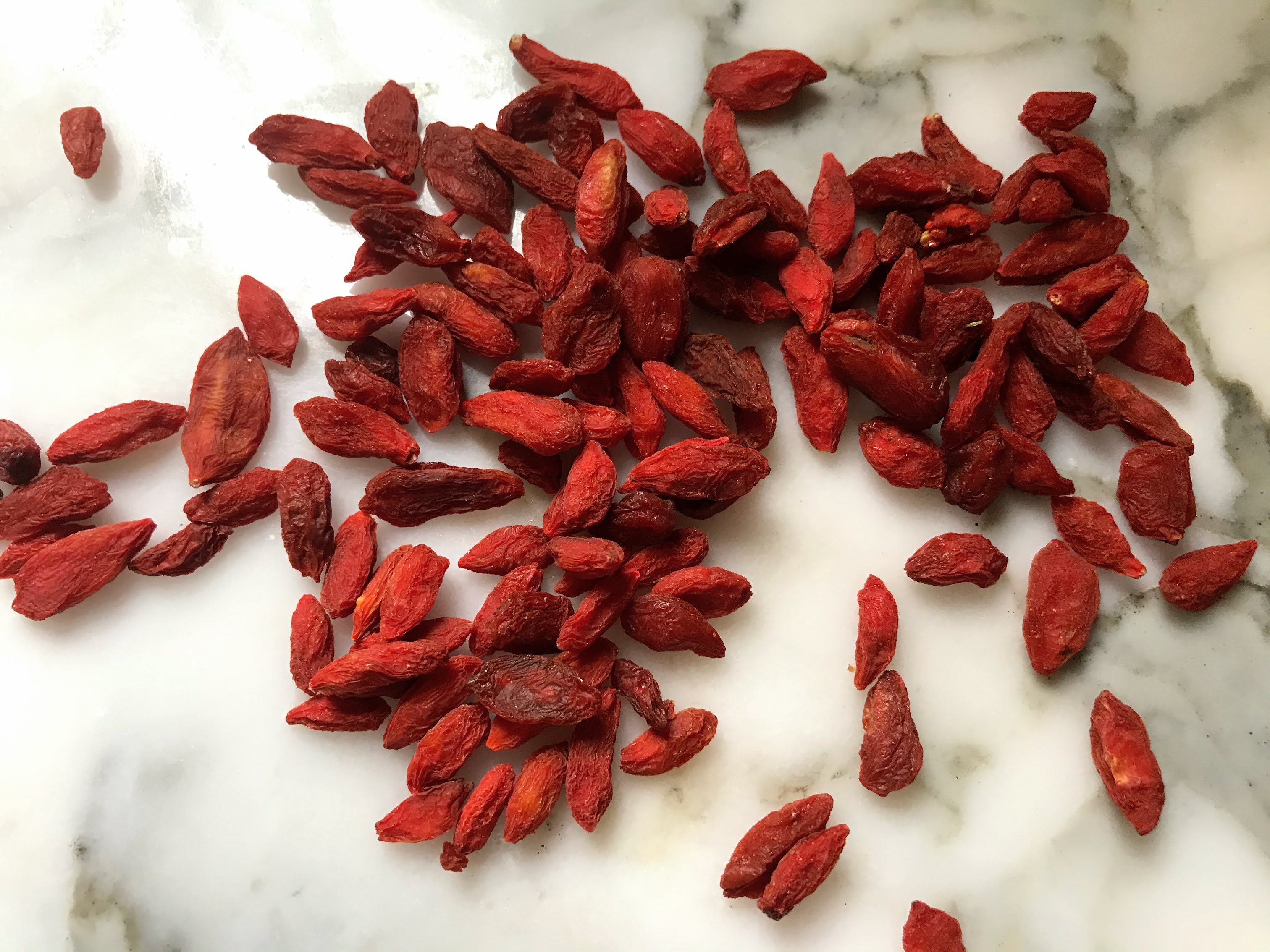
The purpose of the study is:
To evaluate the effects of goji berry intake for three months on macular pigment ocular density (MPOD) between 45 and 65 years old.
Three study visits over a three-month period, will be required for each eligible participant. During each study period, the participants are required to take 28 grams of goji berry once a day, five times per week, and will complete a set of 24 hour dietary recall,
The Effect of Gojiberry Intake (Lycium Barbarium) on Macular Function
As with any fruit, vegetable or food that has great health benefits, the important thing to remember is that your body needs variety.
No one food can meet all of our nutritional needs. That said, when we do eat, let's eat foods that are going to bring the greatest benefit to our bodies and in this case to our eyes.
It is important to note that these berries may interact with anticoagulant drugs (commonly called "blood-thinners"), such as warfarin (Coumadin®) so check with your doctor first.
Although there are alot of claims as to goji berries benefits that may be hard to verify, one thing is sure - they are full of great nutrition including vitamins, minerals, protein, carbohydrates, fat and antioxidants.
Go from Goji Berries Benefits to Antioxidant Rich Foods
Go from Goji Berries Benefits to WebRN Macular Degeneration Home
Would you like to be updated on:
√ The Latest Macular Degeneration Clinical Trials?

√ Prevention of Macular Degeneration?
√ Tips for Daily Living?
√ Food Suggestions for a Macular Degeneration Diet?
√ Ideas on Visual Aids to Maximize your Sight?
If you said "yes" to any of the above, sign up for my monthly Macular Degeneration News.
